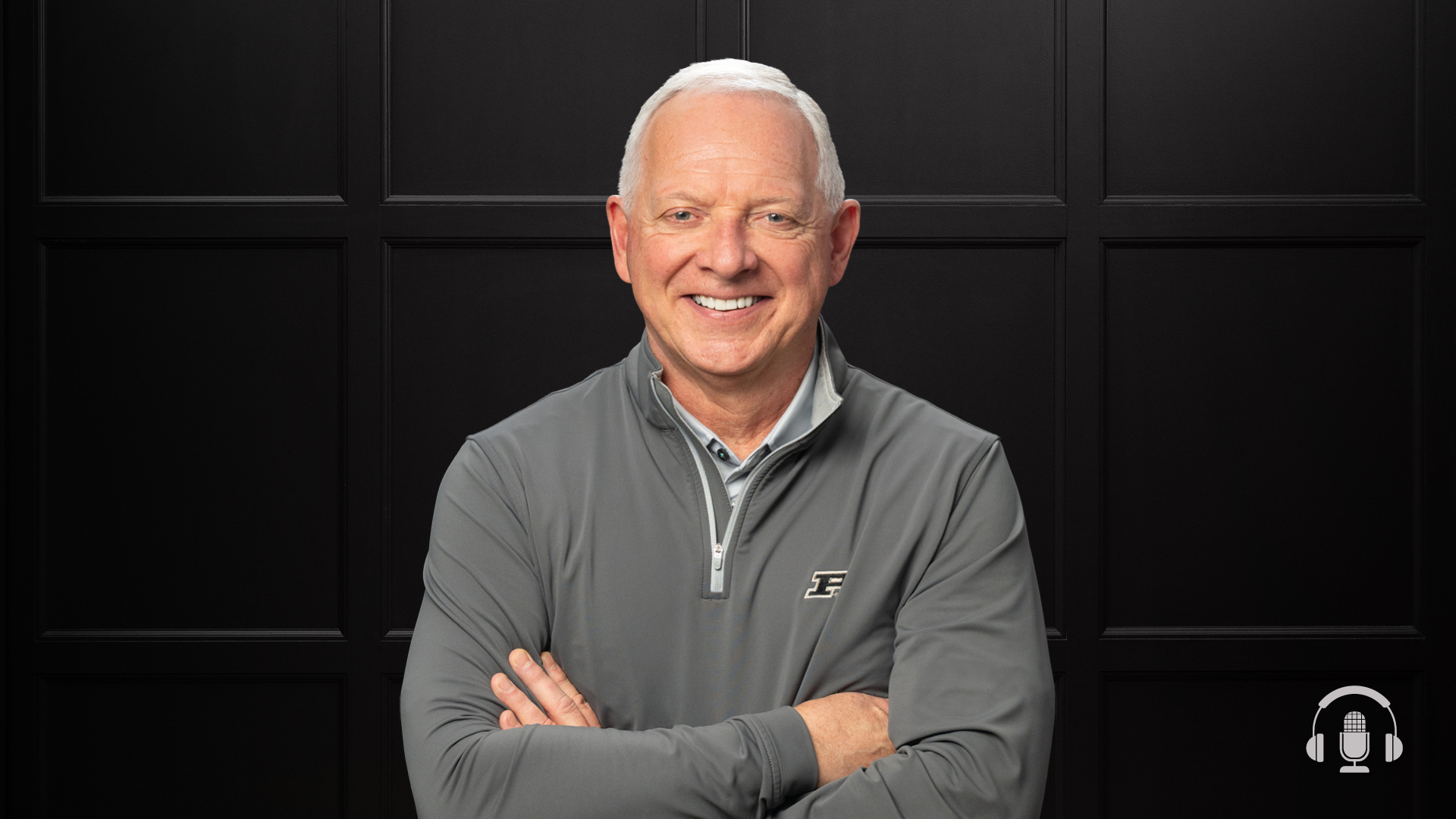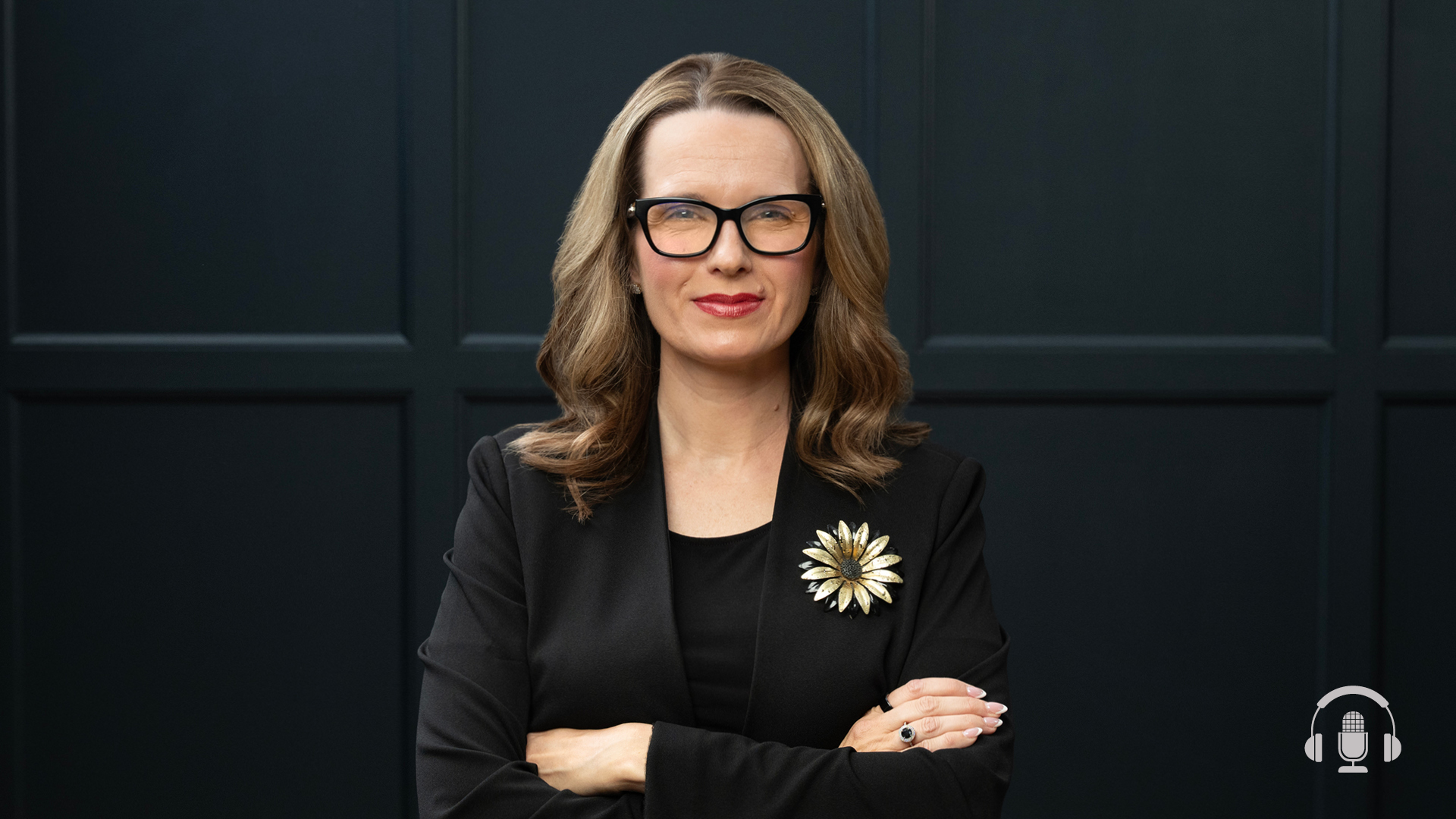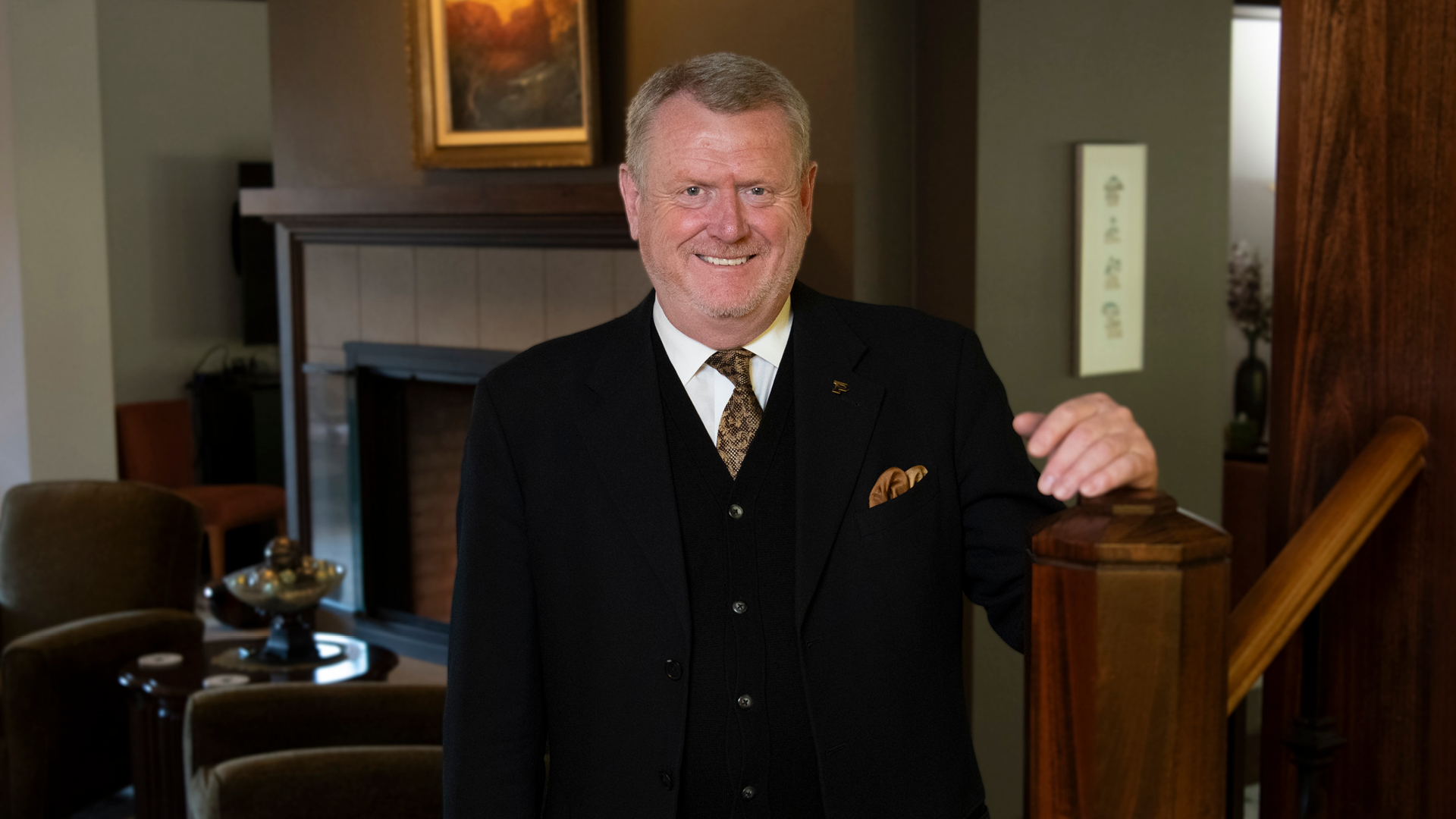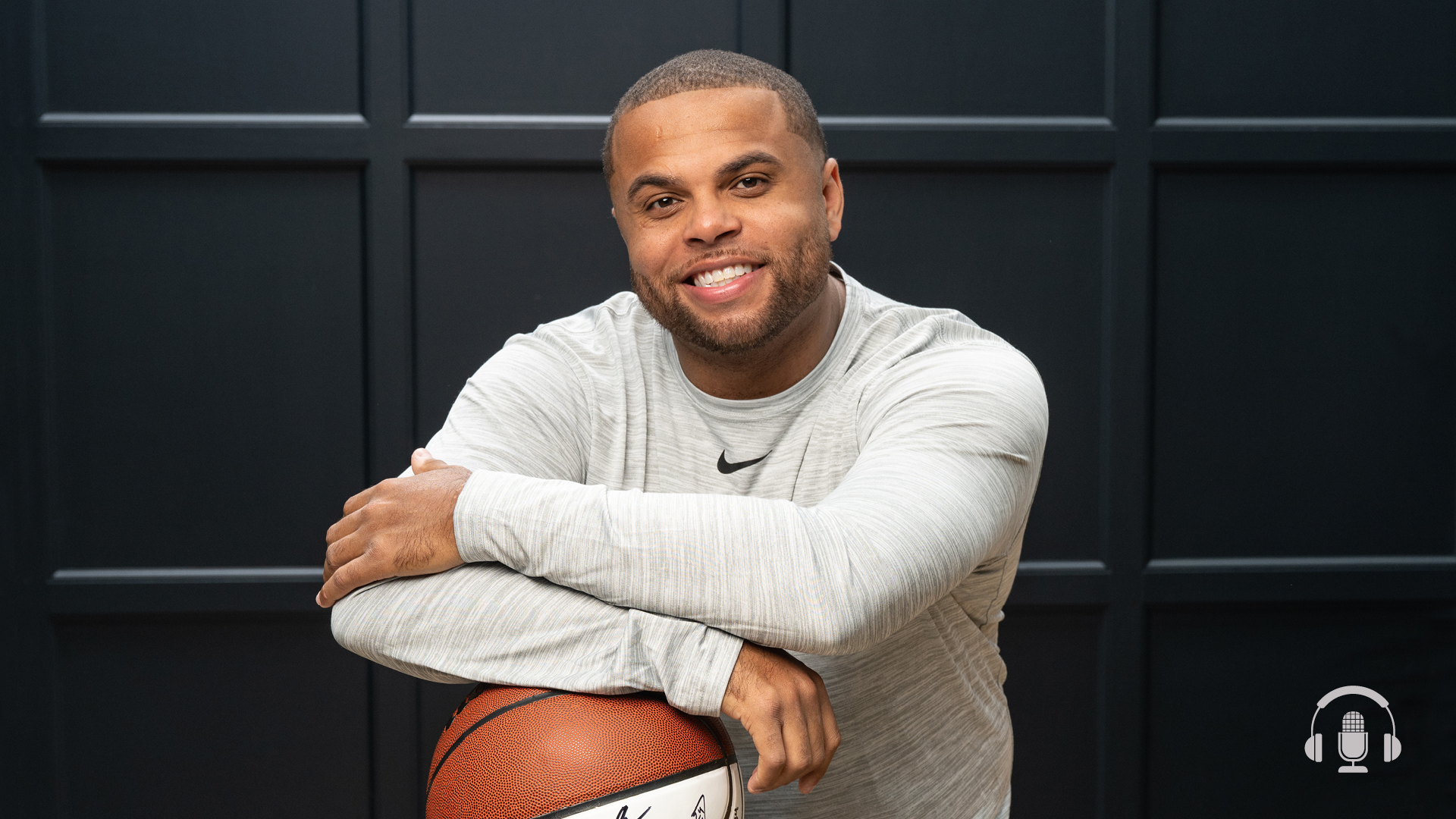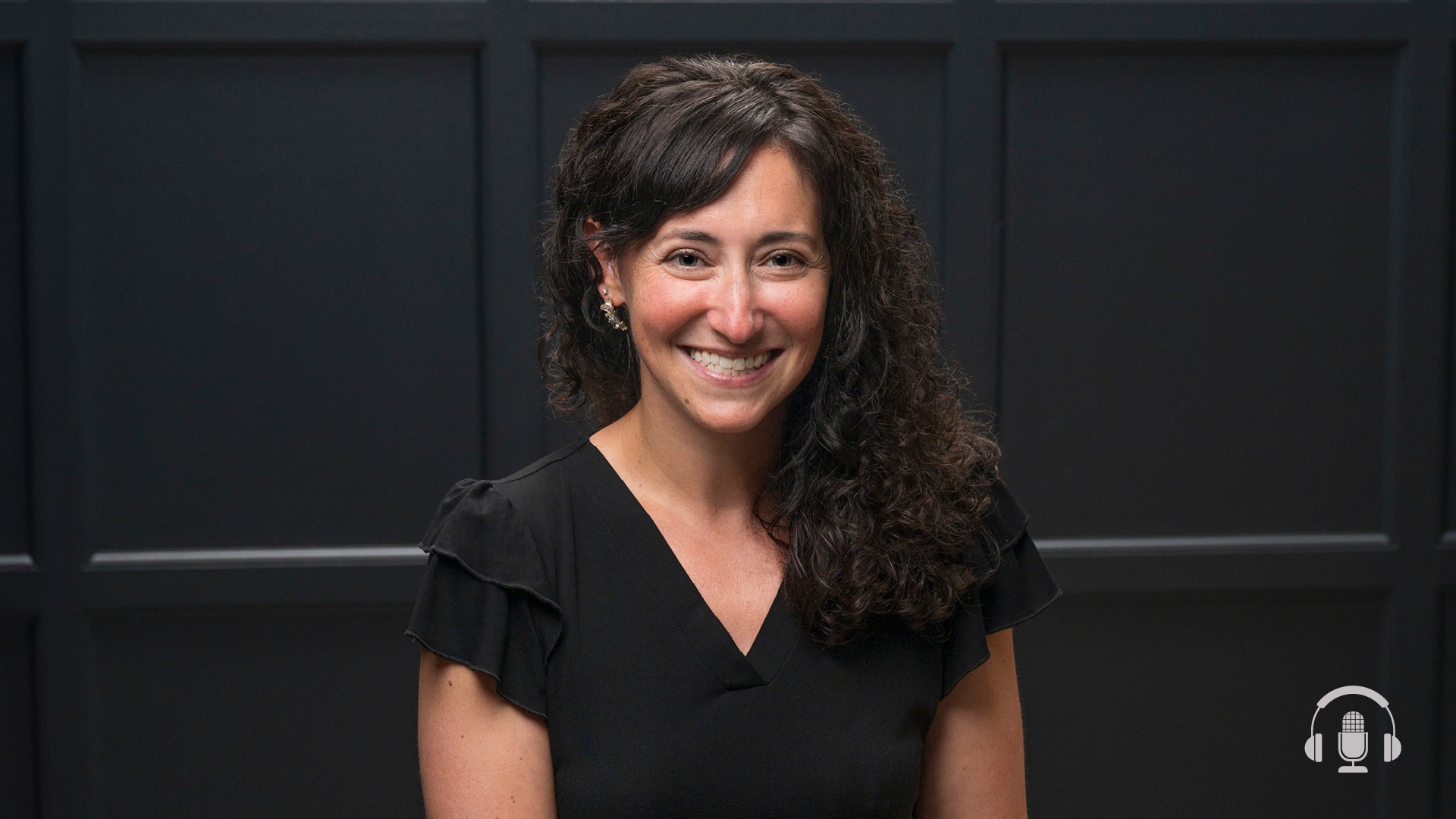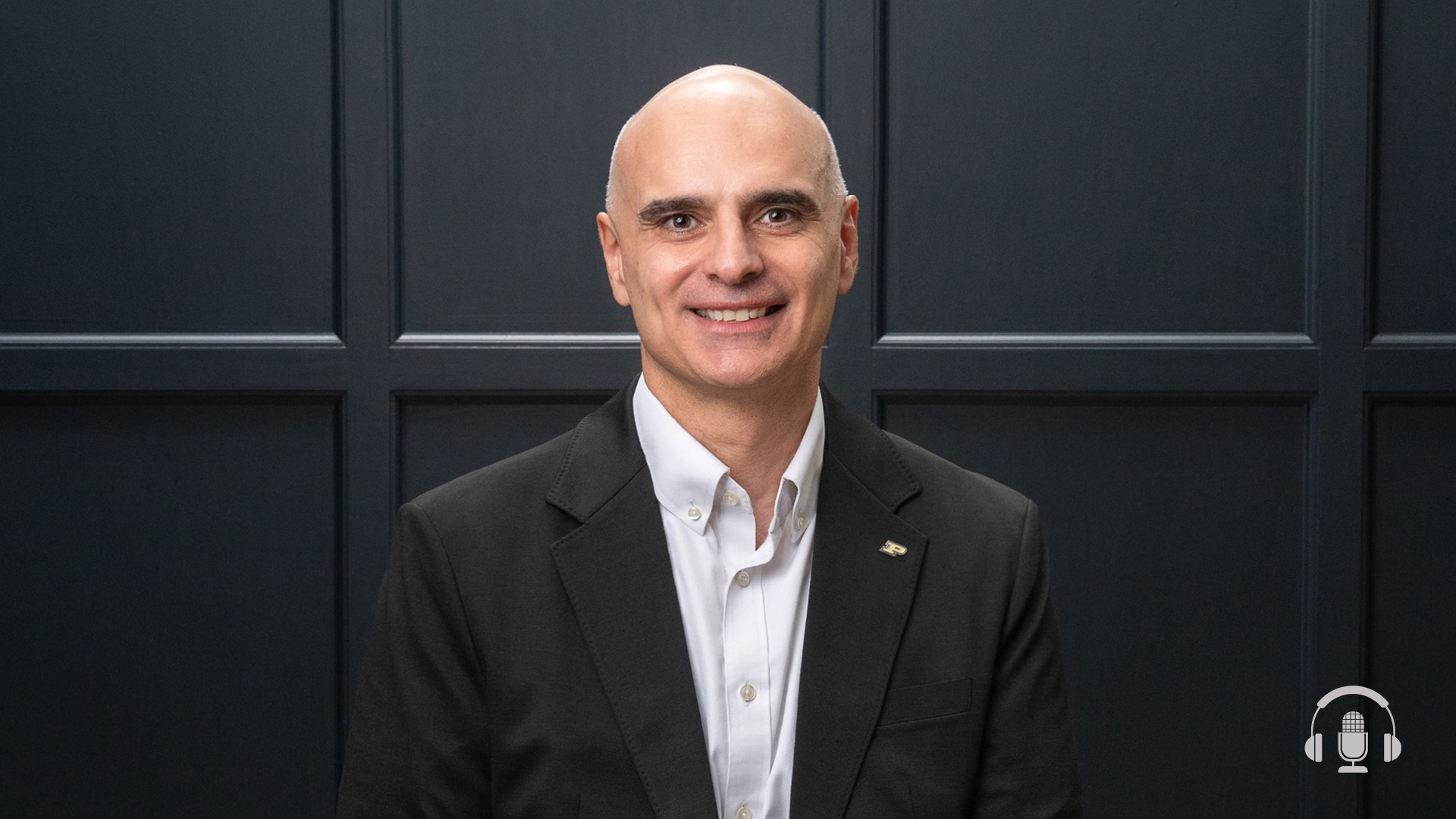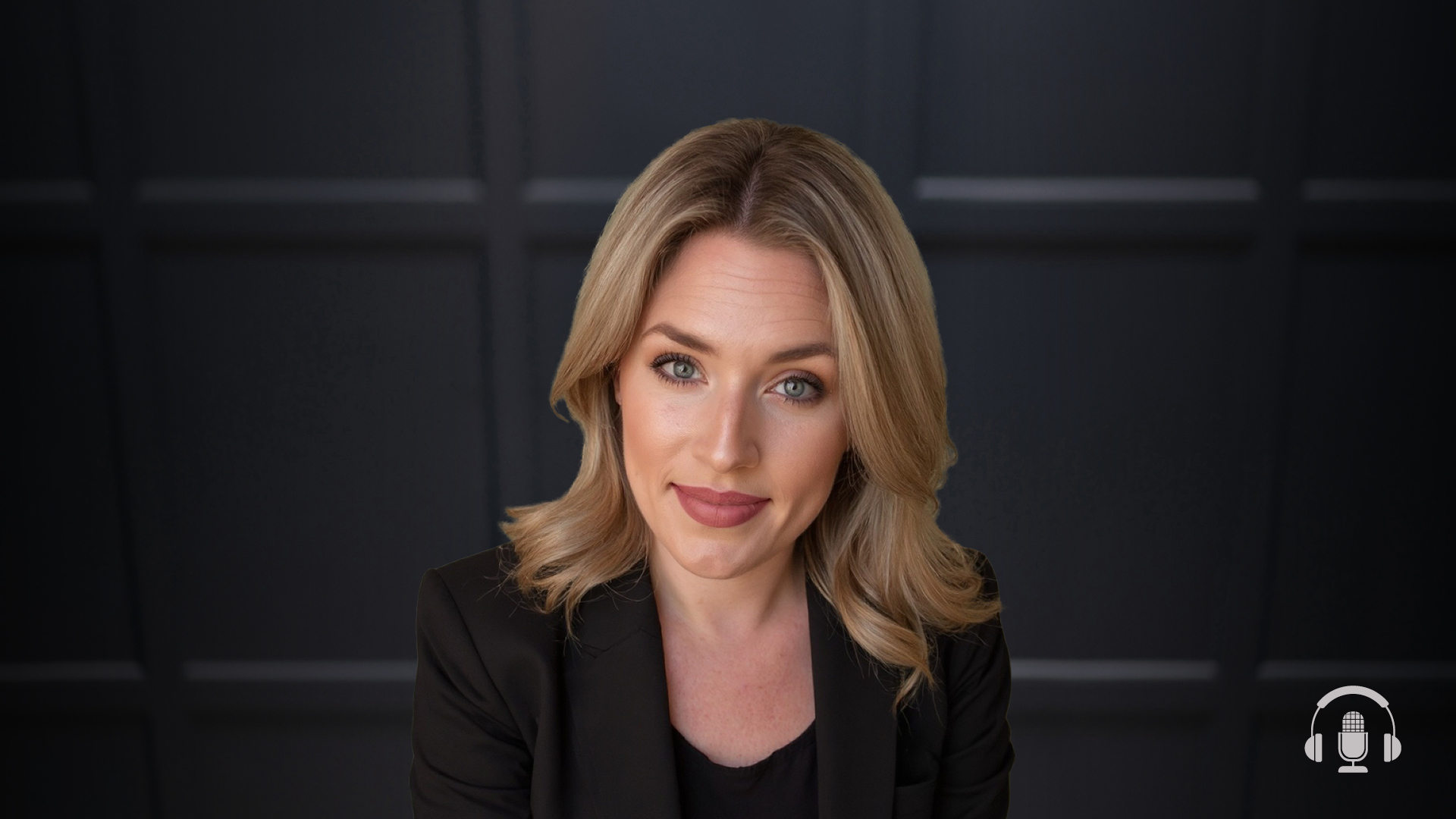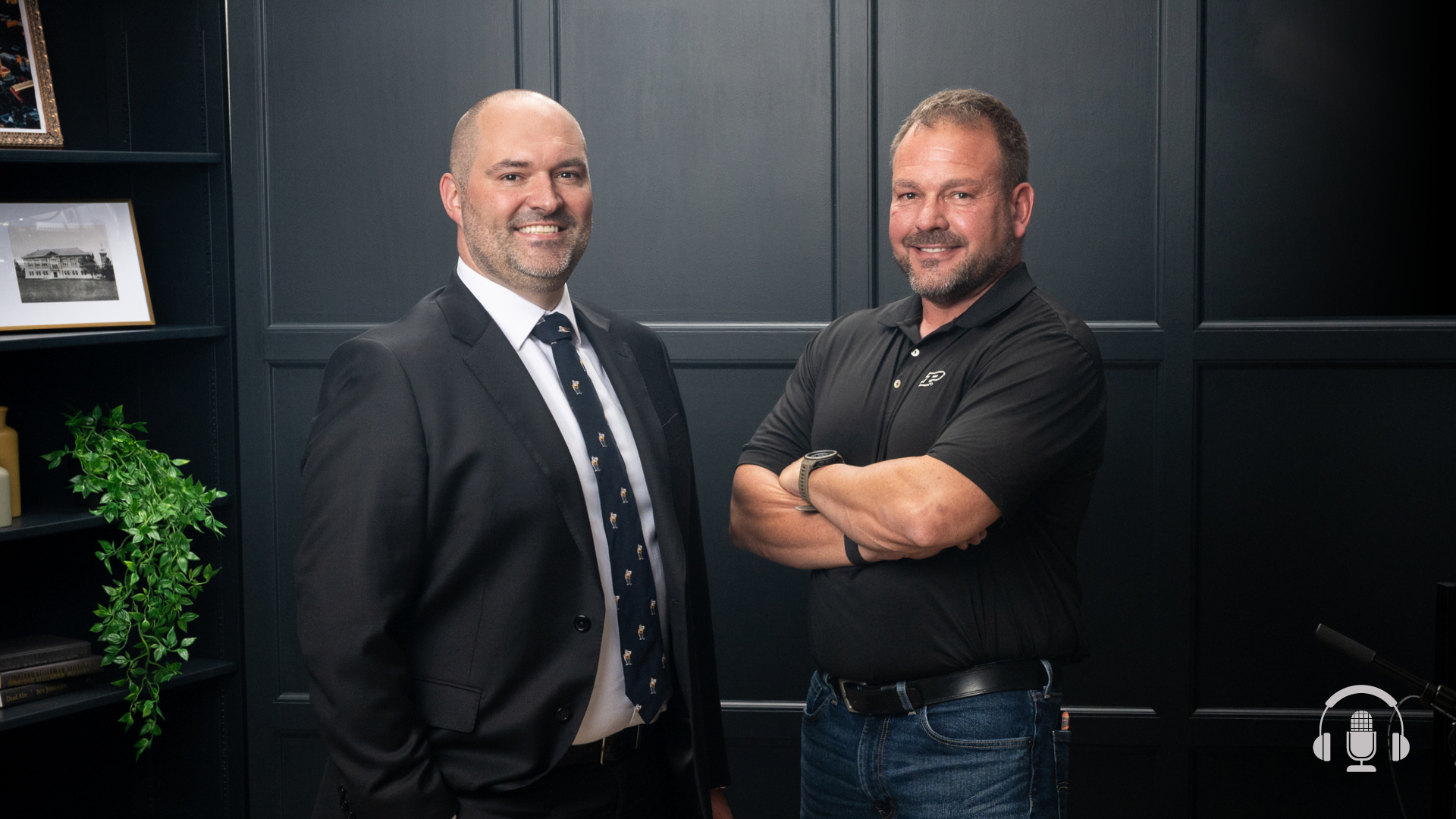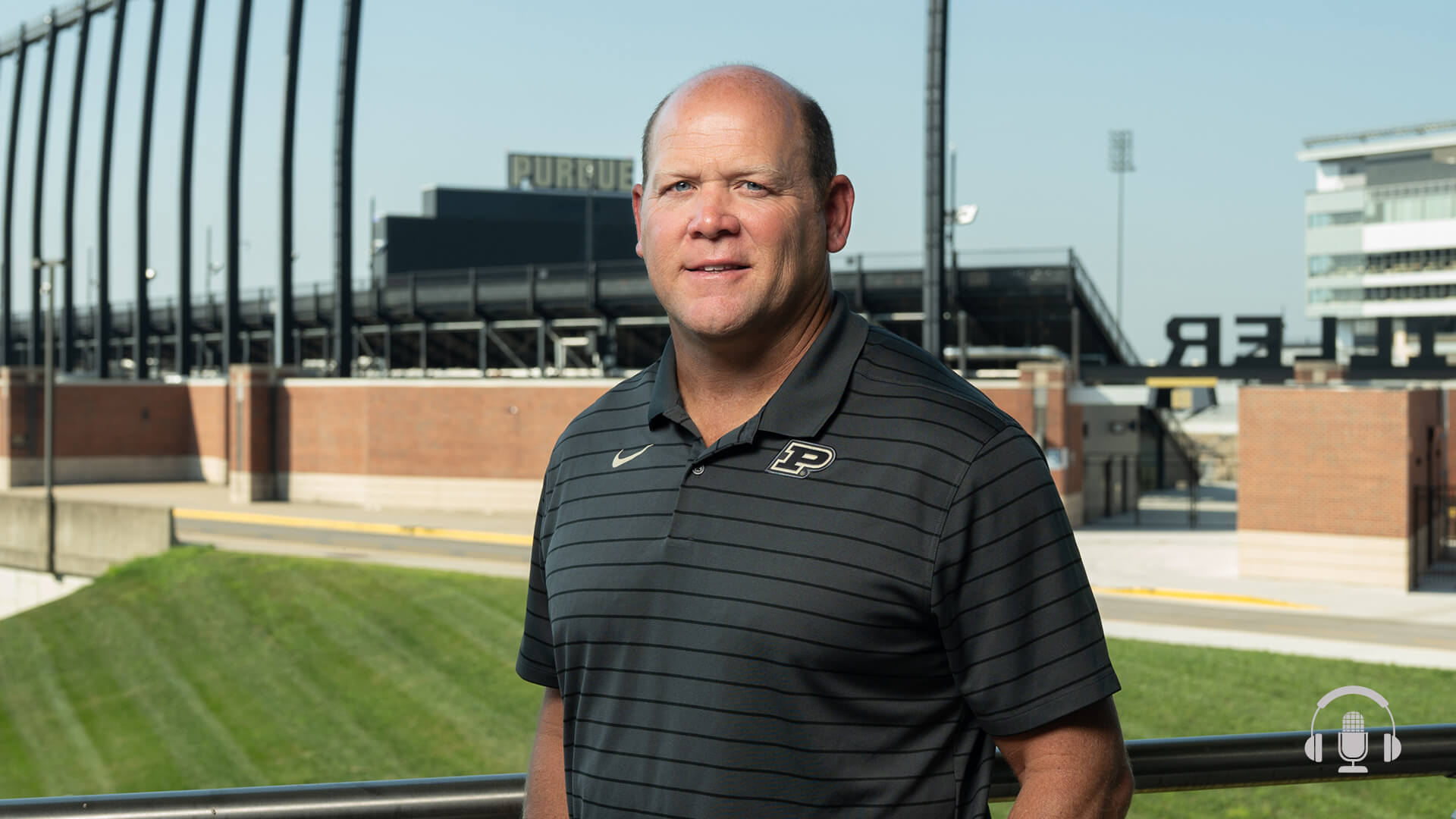Podcast Ep. 128: How Purdue is Using AI for Good — Computer Science Professor Alex Psomas Explains
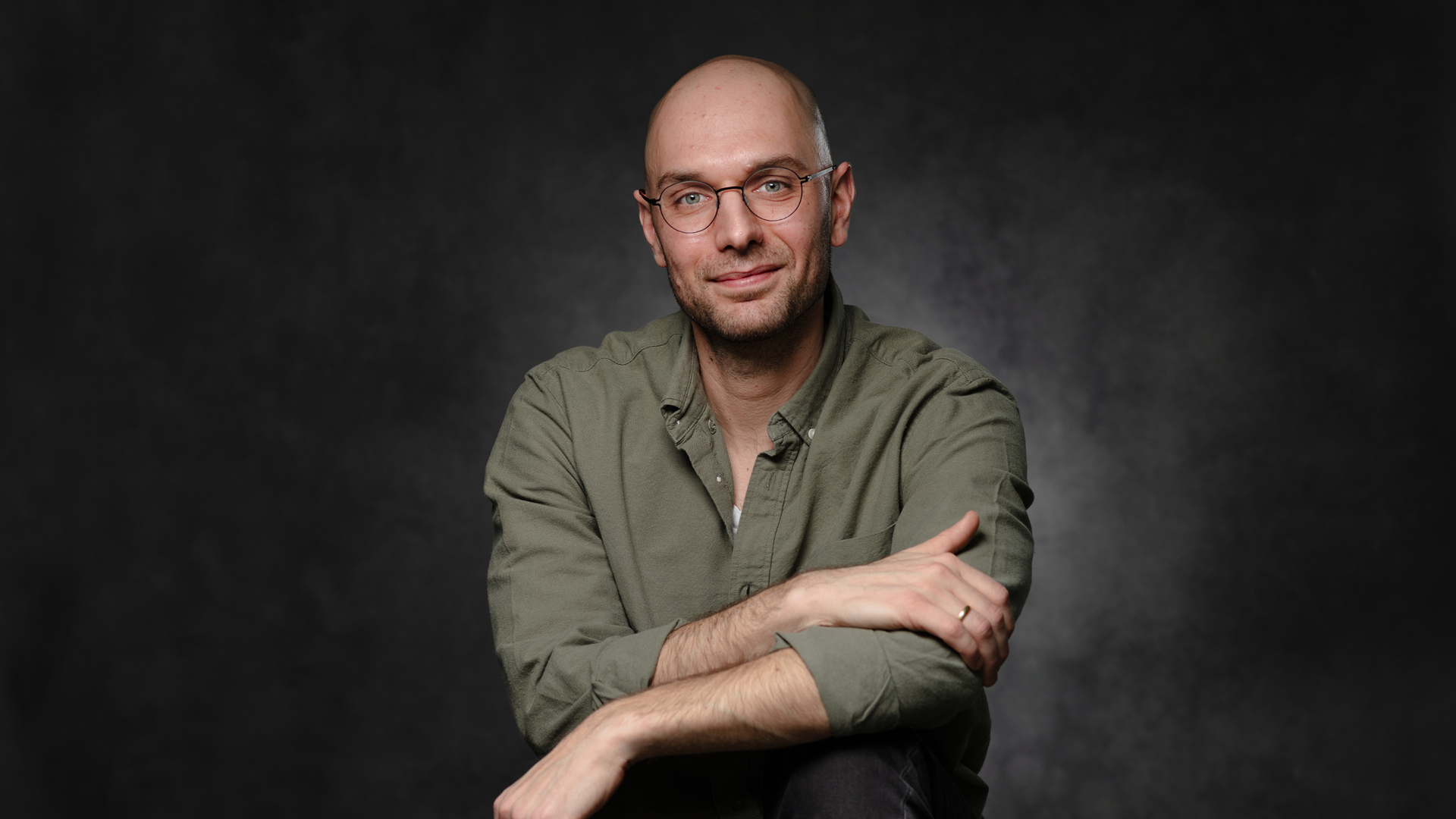
In this episode of “This Is Purdue,” we’re talking to Alex Psomas, assistant professor of computer science in Purdue University’s College of Science.
Alex is an expert in machine learning and artificial intelligence. He utilizes these tools to help solve societal issues like food insecurity by outsourcing decision-making to AI — starting right here in Indiana.
In this episode, you will:
- Gain key insights on AI and machine learning and see how algorithms have rapidly evolved and what it means for you.
- Learn about his collaboration with the Indy Hunger Network and how he automated the redistribution of rejected food away from landfills and into food pantries.
- Hear about the use of open source code, which can help other organizations around the country automate the distribution of vital resources like food.
- Discover how Purdue’s pioneering computer science program and the Purdue Computes initiative are at the forefront of multidisciplinary AI research.
- Hear about Alex’s journey from his home country of Greece to advancing his career in the U.S. and eventually becoming a Boilermaker.
- Explore Alex’s encouraging approach to mentoring his students and how he’s committed to getting them excited about research.
- Find out how awards from the National Science Foundation and Google have accelerated his research, forged collaborations with other faculty and inspired future work.
Don’t miss this episode featuring a Purdue professor and researcher who is using AI to fight hunger and support food pantries.
- Learn more about Alex Psomas
- Learn more about Alex’s research on automating Food Drop
- Learn more about Purdue’s College of Science
- Learn more about Purdue’s Department of Computer Science
- Learn more about the Purdue Computes initiative
- Learn more about Indy Hunger Network
- Learn more about Indy Hunger Network’s Food Drop system
- Learn more about Google AI for Social Good
- Learn more about the National Science Foundation’s Early Career Development Program
- Learn more about food security, safety and sustainability on “This Is Purdue“
- Learn more about Purdue’s online Master of Science in Artificial Intelligence
Podcast Transcript
Alex:
This is Alex Psomas, and you’re listening to, This is Purdue.
Kate:
Hi, I’m Kate Young and you are listening to, This is Purdue, the official podcast for Purdue University. As a Purdue alum and Indiana native I know firsthand about the family of students and professors who are in it together, persistently pursuing and relentlessly rethinking. Who are the next game changers, difference makers, ceiling breakers, innovators, who are these boilermakers? Join me as we feature students, faculty, and alumni, taking small steps toward their giant leaps and inspiring others to do the same.
Alex:
AI is a set of tools for all sorts of things. The AI umbrella is so large, so many things fit under it. In our application, we were trying to solve a very specific task, which is match food donations to food recipients. The other thing is now you can scale. Now you can just go beyond Indiana. You can include more food banks. You can process donations a lot faster because a human doesn’t have to sit around trying to call people on the phone and so on.
Kate:
In this episode of This is Purdue, we are talking to Alex Psomas, assistant professor of computer Science in Purdue University’s College of Science. Alex and his team at Purdue are using artificial intelligence to fight hunger. That’s right. This Purdue researcher is helping to solve one of the world’s toughest challenges, food insecurity and hunger. Now, we’ve all heard so much about AI in the news recently, and Alex is going to dig into this technology and how he leverages AI for good to solve societal issues right in his own Indiana community. You’ll hear about Alex’s AI models used to outsource decisions to make more informed and fairer choices on how best to distribute food among food pantries in Indianapolis.
Plus, he shares how this model can scale to other areas of the country as well. By the way, this interview was extra special for our, this is Purdue team because Alex was the first boilermaker guest to join us in our new podcast studio. You can check out more on our YouTube page, YouTube.com\@This is Purdue. Okay, first things first, though. We kicked things off with Alex’s life growing up in Greece and his journey to becoming an assistant professor and researcher more than 5,000 miles away at Purdue University in West Lafayette, Indiana. Alex, thank you so much for joining us on, this is Purdue. This is our first interview with our new studio set, so we’re really excited to have you and show off our studio too.
Alex:
Awesome. Thank you for having me. It’s very exciting.
Kate:
So tell us a little bit about your childhood. Have you always been interested in technology? You’re a computer science professor and researcher. Is that something growing up that you’ve always loved computers and technology, or how did that start for you?
Alex:
Yeah, that’s a difficult question to answer. So my dad was a welder and later on he had his own business of making stainless steel tanks for wine and oil and these sort of things. So even as a kid, eight, 10 years old, I would go on sweep floors or whatever. So I kind of used to growing up with large machinery around, so to speak, he would throw me around. I would always be curious about how things work and I had a computer at home that I would take apart and put together because I had nothing else to do, I guess. So I was always into how things work.
Kate:
Kind of tinkering around with computers.
Alex:
Yeah, exactly.
Kate:
Give us a little bit of background on what sparked you and your interest in wanting to give back to your community. Was that something that interested you when you were younger as well?
Alex:
So I’m from Greece. Greece is a small place and like all small places, community is important. I was part of many communities growing up, my rowing community, my high school community, my college community, family, later on in grad school, the theory community and so on, and looking back at my life and experiences. Every time I’m part of a strong community, that’s when I’m the happiest. And of course, part of being part of a community is not just feeling supported, but also supporting others.
Kate:
So you’re from Greece. We have to hear about your journey to Purdue and how you wanted to become a boilermaker. How did that happen?
Alex:
In Greece, the paths are somewhat structured. So up until high school, even if you’re in a small village, an island with 10 people or you’re in downtown Athens, everyone does the same books. Everyone is very uniform education right up until the last year of high school where you have to make humongous choice of where to go to college, and it’s very specific. So if you pick to be a math major, you’re looking at 40 math courses and nothing else.
Kate:
Oh wow.
Alex:
Computer science major, 40 computer science courses and nothing else. You don’t really get to pick inside of college.
Kate:
Not very well-rounded.
Alex:
Yes, yes, very one street. So it was a very hard choice for me. I was into math, computer science, mechanical engineering, coaching, everything under the sun. I picked computer science because I’m greedy, looking at the curriculum, it looked like it had the most loopholes to learn a lot of things. It had a lot of math. You could do more physics if you wanted. You could do more coding if you wanted. So I thought it was a good way to decide later. And in college I fell in love with algorithms, and computer science, I really… First course I took was phenomenal, which is a course I’m teaching this semester, by the way.
I always tell this to the students. And then I went to grad school. That was my first experience in the United States. I went to Berkeley. Then I wanted to just keep learning, keep contributing to research and postdoc and then job market for academic jobs. That’s the first time I visited Purdue when I was interviewing here. And it really struck me as a special place. It seemed that even though people were doing super cool stuff and super impactful stuff, it was a sense of calmness and kind of lack of stress. Everyone was very nice. And from the people I talked to, it felt like everyone felt supported. My experience as well is the same. So it has lived up to this expectation.
Kate:
Yeah, we were talking before this about how California and the mid-west is a bit different vibes, right?
Alex:
Yeah, yeah, yeah. The stress levels are really-
Kate:
I’m glad we’ve given you the warm Midwest welcome here. Okay, so let’s get into AI. Someone who doesn’t know AI, doesn’t know how to use it, what would you tell them? Like AI one-on-one for beginners?
Alex:
That’s a great question because I can answer it with other people’s words.
Kate:
Okay.
Alex:
This topic has shown up since Ancient Greece if you really want to be pedantic about it. But even the beginning of computer science, this conversation has come up again and again. For example, Larry Tesler, famous computer science said, “AI is what has not been done yet”, which is somehow accurate. Dijkstra another very famous computer scientist, my favorite quote of all time, which is regarding artificial intelligence. So you have intelligence, you have thinking. “So the question of whether computers can think is the same as whether submarines can swim.”
So people like to have this cute one-liners, but what is AI? AI is a set of tools, a big umbrella, all sorts of things fit under it, and it’s an evolving agenda. So when I was an undergrad, we talk about spam filtering or things that are now silly, spell checking, this would fit under AI was now because my phone does IT, it doesn’t seem so exciting anymore. Back then my phone didn’t do it, so it was more exciting. But what’s common, typically when we talk about AI, we mean reasoning, learning, knowledge, representation, language processing, all these sort of things are typically under the AI umbrella.
Kate:
What would you tell someone though who might be confused about it? Is it easy to use? Where would they start, maybe?
Alex:
So the reason I think things are confusing is because the umbrella is so big, the question is so broad. When you say about AI, let’s do an analogy. There’s this beautiful book by Narayanan and Kapoor, okay, AI Snake Oil. And there they describe a world where every machine that can take you from place A to place B, it’s called vehicle. So a bicycle and a car and a ship and an airplane and a rocket. They’re all vehicles. So now let’s try to have the discussion of if vehicles are environmentally friendly, it’s a very hard discussion to have. It’s impossible because we’re putting all these things under one umbrella. If someone made a faster ship engine, all of a sudden you’re like, why is my bicycle not going any faster, right? It’s very, very difficult. So I think the difficulty in the conversation comes from the umbrella being so big.
So we can talk about prediction, AI prediction. Is AI any good at predicting the future? Is AI any good at recognizing things like, show it a picture of a cat, can tell you it’s a cat. These are two very different things. So I would say where to start, just to answer your question, start at understanding that it’s not one thing. There’s categories. That’s the first thing to understand. AI is a set of tools for all sorts of things. The AI umbrella is so large, so many things fit under it. In our application, we were trying to solve a very specific task, which is match food donations to food recipients. It’s a matching problem, and we were trying to automate a person. So we have very, very concrete task at hand and we have very, very concrete tools to solve it.
Kate:
So as Alex just mentioned, he and his team used AI to match food donations to food recipients. Now, if you remember our research series episode with Purdue food science professors, Amanda Dearing and Haley Oliver, food insecurity is a massive problem across the world. And boilermaker researchers are continually working on solutions, including Alex. And according to the United States Department of Agriculture, food waste is estimated at between 30 and 40% of the food supply. So how is Purdue helping to solve this? Alex explains more about how his work with the Indy Hunger Network on an initiative known as Food Drop allows shipments of perfectly edible food to be efficiently donated to food banks instead of being bound for a landfill.
Alex:
So the Food Drop Initiative is an initiative run by the Indy Hunger network of food organization in Indianapolis. And its purpose is to redirect rejected food loads of truck drivers away from landfills and into food banks. And the idea was very simple. You had these truck drivers and for one reason or the other, they had little to do with whether they were carrying food that was edible, but they had a bunch of food that they had to get rid of like whatever they were supposed to deliver it didn’t want it for whatever reason, you can think of you’re carrying and pallets of food and one of them shifts. The food is fine, everything is fine, but the recipient doesn’t want it. So now what do you do? The outside option is just take it to a landfill, throw it away. So Food Drop was trying to not have this happen and match the food to food banks.
Kate:
So how and why exactly did Alex and his team use AI to fuel food pantries? He shares why this unique process takes all of the emotion out of the equation something humans find impossible to do and replaces this decision-making with innovative AI models to weigh all of the possible considerations and then come up with a solution that best benefits the most amount of people. See, by automating food matching decisions, more logical and fair food distribution can occur.
Alex:
So where does AI and machine learning come in? So in these problems, these are matching problems. You’re trying to match a donor with a recipient. There’s many things you can think of this way. So as things scale up, when you let a human make these decisions, what you’ll start seeing is that 99% of the donations go to only 1% of the possible donors. And this could be all sorts of human aspects, like, oh, this person responds quickly, or this person is very reliable or whatever. But the effect is the effect. The things start concentrating, and that’s where machine learning and AI can help. The current system is a person is making these matching decisions and we just want to automate it. And in doing so, we want to ensure that of course we’re doing the right decisions, making a sense of people are not driving a lot, the food is going to people who want the food and can use the food.
But also at the same time, we are being fair. The way decision making works is we would, for many decisions that need to be made, we would like to have to do things in a democratic process where we all come together and make a decision. And that is sometimes possible, for example, when we want elect a representative, but often the way we make decisions is we elect a representative and have them make all the decisions, which is sort of the other extreme. And that is because lack of expertise or because the input output is too much, it’s too much to ask everyone for something every single time.
The thing with AI and one of the methods that we do suggest, you can often predict what people would do. So if I could predict what you think all the time, then maybe I can simulate the way that direct democracy. So asking everyone a question all the time would work if I just have a good way to predict what you would do. And now this allows me to scale or this allows me to make more fair decisions for a number of things. So food donation, that’s precisely the approach we took.
Kate:
Alex dives further into food insecurity in the US and reiterates the importance of using AI for good.
Alex:
When you start working in these food allocation problems, I didn’t realize it at least, but food insecurity is embarrassingly bad, globally but also in the US. You would think, okay, there’s so much food, everyone’s throwing away their leftovers and trying to lose weight or whatever. Food insecurity, which is defined as, I’m going to bed hungry. A hundred percent of US counties have food insecurity. Somewhere like 40 million adults, 10 million children face food insecurity in this country in 2022. The numbers are shocking. In our minds, or at least in my mind. I knew it was a problem, but I didn’t realize before I started working in the space back in 2017 that it’s a huge problem. It’s unbelievable how big this problem is.
Kate:
Alex says, this machine learning program also saves people time and energy. Not only that, but this model can be scaled beyond Indiana to include more food banks.
Alex:
Beyond people’s time. So again, this matching process is run by a single person. This is not their only job. So now we can free some of their time into something that in a sense, a machine can do better or an algorithm can do better. The other thing is now you can scale. Now you can just go beyond Indiana, you can include more food banks, you can process donations a lot faster because a human doesn’t have to sit around trying to call people on the phone and so on.
Kate:
And speaking of scaling, Alex and his team are now working with the Society of St. Andrew, a United Methodist Hunger Relief nonprofit that focuses on food waste and hunger.
Alex:
So the idea was once it’s automated, it would get passed on to another organization which we have now. So this is now being supported and it lives under a different organization called Society of St. Andrews. But they didn’t have to train anybody, they could just immediately take this on because there’s nothing to do. There’s nothing that you need to learn. You don’t need an employee who knows how these decisions are made or how to navigate the process. And in fact, a few months ago, an organization from Washington, the state of Washington, so near, I think their south of Seattle want to take this on. They want to run a similar program over there. They don’t need to do anything. They could just, our code is open source, they can just take it, change the locations of the recipients and run it. It can run tomorrow if they decide to run it.
Kate:
As Alex just mentioned, this model uses open source code, code that’s open to the public. It’s also funded by the National Science Foundation and a Google AI for Social Good award. He discusses his goals for continuing to expand.
Alex:
We are interested in expanding. So we have seen things getting allocated. We want to do more. I think there’s more to do just because we’re not limited by human time. So we can expand in a sense for free. So we have some funding underway. There are some changes we want to make in the backend, some technical changes. The goal is to try to grow our set of recipients, so the people on the list. So contact more food banks. So we’re working with the Society of St. Andrew for this. We have applied for some funding for this project and we’ll see how it goes.
Kate:
We talked about there’s no human decision-making and it’s all AI, but ethics in the tech industry has been at the top of the headlines lately. You’re nodding. So why are you confident that your solution with this food drop has this fairness and can maintain that fairness?
Alex:
Well, the short answer is is because I can prove it. Okay, you see, or what’s the process here? You see a real problem. You see a real world problem. Now reality is complicated and math cannot deal with that. So you abstract away details and you get to some nice model, a theoretical model where the actors behave in a simple way, simple enough for you to be able to argue for. And in that model you define what fair means and then you prove some stuff and hopefully whatever you prove matches something to back to the world.
So the only disagreement can come, someone can complain, is whether they disagree with what I mean when I say fair. they say no, what you say is fair is actually not fair. And the other is, when I did this abstraction, whether I move something that I shouldn’t have, whether I took away something from the real world that’s very important. And I removed it because I didn’t think it was important. And I believe that we haven’t done this. I can tell you what the fairness notion is. I think that’s a simple one. So there’s no technical things about it, but if there’s any arguments, it will be one of those two steps. And because everything is open, you can go read my paper, I’m open to-
Kate:
You’re open to feedback?
Alex:
Yeah, of course. So that’s how science proceeds.
Kate:
We’ll link Alex’s research in our podcast show notes for you all. Alex’s graduate and undergraduate students are involved in this research as well. So what’s his approach to mentoring them, especially when it comes to topics like AI and computer science that are changing day to day on a global scale? Here’s a hint. What he wants for these boilermakers students is actually pretty simple. Find something that excites them.
Alex:
So what’s my teaching style? So I’m a little chaotic. I don’t know if this coming across in this conversation. It’s not for no reason. So I really strongly believe that the bottleneck in research, in academic research, many, many times, more times than people would think, it’s not intelligence or talent. That’s what most people think. That’s why science is not progressing because there’s not enough talent. I think that’s not true. I think the real reason is there’s not desire. So people like me are excited about problems and I have found it a very unsuccessful way to mentor people is to tell them to work on the problems that I’m excited about. So instead I do something that is very difficult for them. So they’re all very annoyed, which is tell them everything under the sun that I’m excited about. Not one thing. So 50 things and then let them pick.
Kate:
So tell us some of those things that you’re excited about.
Alex:
A lot of them are very technical, like very specific technical questions that I don’t know how to answer, but others are the opposite. So I’m very excited about AI applications in democracy. What does that mean? What can we do? How can we make better decisions collectively? How do you form committees, citizen assemblies? These sort of things are very excited for me or I’ve been recently learning a lot about, through actually colleagues here at Purdue, applications of AI and machine learning in medicine, how some things are done a little naively.
So I’m excited to learn more about, okay, there seems to be some room to put things together more. So this will be very open-ended examples. And my hope, and this hope has been materialized, is that someone will get excited about something that is in my peripheral vision of excitement and then I get to learn from them. So that’s the best way to keep track of things is have someone who’s really excited tell you about it, right? So I hopefully to infect someone and then learn from them.
Kate:
I love what Alex just said right there. He knows he can’t mentor students by telling them to work on problems that interest and excite him. They need to work on problems that inspire and excite them. That’s the difference maker. And speaking of students, in 2022, Alex received a career award from the National Science Foundation, which is the most prestigious award given to junior faculty who embody the role of teacher scholars through research. Alex shares what this honor means to him.
Alex:
First, it was really nice to be able to get the funds to fund students and have them explore their interests together with mine. Certainly the award helped with that, but more than that, it felt really nice because this was under AF, Algorithmic Foundations, so which is a very broad kind of umbrella in theoretical computer science, the comparison a little bit apples to oranges, how you compare to people who to give the award to. So it really felt, I would say, very, very nice that people appreciate the work that I do. People in my community, in the theoretical computer science community appreciate this work. I feel like that was the most meaningful part of this.
Kate:
You talked about your passion for computer science. Purdue had the first computer science program in the US. How are researchers like you at Purdue using that experience to be part of this rapid evolution of AI?
Alex:
Purdue has had the first CS department and that really put us in a good spot today. And you can see that computer science really has a big place in Purdue as a whole. Purdue is at the forefront of all sorts of things. There’s people like me who focus on more foundational aspects, understanding things at their core. We have very, very strong people doing computer vision, things that have to do with images, video, that sort of thing. Robotics, we have a very, very strong robotics team. We might have Aniket Bera-
Kate:
That’s exactly I’m thinking of the AI dialogue.
Alex:
Yes. Security is very strong. So people trying to figure out is AI security? Is AI trustworthy? Purdue as a whole is attacking the human computer interaction, all the talent we’re recruiting and all the kind of combined efforts that go into the broader agenda. But I think Purdue as a whole, computer science is really at the forefront of this.
Kate:
So not only is Purdue a leader in computer science, but our university is also a leader when it comes to AI and one of Purdue University President Mung Chiang’s strategic initiatives includes Purdue Computes, which launched as student interest in computing related majors and the societal impact of artificial intelligence and ships continued to rise rapidly. Purdue computes emphasizes these four key pillars, computing, semiconductor research and development, physical AI and quantum science and engineering. Alex shares more.
Alex:
Purdue computes is this massive initiative at Purdue that’s trying to attack a huge number of problems all at the same time and recruiting the manpower to do so. The whole initiative is facing challenges and providing solutions for things across the board. So AI and applications to agriculture, manufacturing, detecting bias, chip design, robotics, everything across the board. I think just so many exciting things are happening in that space.
Kate:
What’s your favorite part about being part of the Purdue Computes initiative?
Alex:
I think getting to collaborate with people, just having the expertise that you need available. So for example, I was recently in talks with Food Finders, the company, the NGO here in Lafayette. Again, some AI application in their operations and there was some problem with data collection. It seemed that there was a very expensive solution and that cheaper solution to do the data collection would take a picture. Everyone in the market takes a picture of something and I was like, oh, but I know nothing about computer vision. So I don’t know, actually what I’m saying is reasonable. Well, two days later now, I know it’s reasonable because I was talking to my colleague Raymond, who is one of the best people in the world and computer vision and he was right there, I could just ask him. It really makes everything go a lot faster having all these cool people doing cool stuff.
Kate:
We’ve had a lot of researchers on the podcast who have said it’s so collaborative. It’s this special community within Purdue. So that’s cool to hear.
Alex:
That’s how science moves. Just by having the expertise. No one can be an expert on everything. It’s just too many things going. So just knowing that you have reliable colleagues that are experts in their own domain is really, really important.
Kate:
Going back to, you talked about community, growing up in Greece. What has it been like acclimating and being involved in this boilermaker community overall for you and your family?
Alex:
It’s been fun. It’s been fun. It is just very different. It’s very hard to compare. Greece is a very uniform place. Everyone pretty much looks like me and acts like me. Exactly. Roughly, it’s exaggerating. On the flip side, Purdue is an international community driven from the university. So just so many people come from all sorts of different backgrounds. It has been really cool to be part of that.
Kate:
What discoveries or findings can we expect from Purdue, specifically within computer science and AI in 2025?
Alex:
That’s a hard question to answer. So we have some of the best people in the world working on things across the board. So foundational things, theoretical things, vision, robotics, human-computer interaction, and their applications across the board to agriculture medicine.
Kate:
So last question here. You get to see and contribute to so much amazing research at Purdue, like we talked about earlier. What do you want the world to know about the work that’s happening here at Purdue?
Alex:
We’re a leader in so many things. People here are pushing the agenda in all sorts of things, especially the College of Engineering and the College of Agriculture are a big part of being world leaders. But even at the College of Science, we’re really a part of all the exciting things that are happening in the AI space.
Kate:
Well, we can’t thank you enough for joining us and celebrating our new studio with us. Is there anything else I missed? Anything you want to tell our listeners?
Alex:
Regarding AI, I think the most important thing is to really go beyond the buzzwords. I would say that is a concrete message that I think is important to put out there. I think a lot of people are somehow suspicious that AI around them is bogus or exaggerated or just straight out false. At the same time, it seems very useful in other things, and I think people are having a hard time articulating exactly what they mean and it’s difficult to articulate exactly what you mean. And I think that the confusion and the way the confusion gets clarified is by knowing the stuff. So be less scared and more open to learning how these things work because it’s not going anywhere. Our lives will become more and more algorithmic, so to speak.
Kate:
I love that. That’s great. Be open-minded. Don’t be scared to utilize AI in your general life.
Alex:
It’s easy for me to say because it’s my job and also it’s my job to be wrong. That’s most of research. Only mistakes. 1% of the time you do something good, 99% it’s wrong. That’s fine. So I’m very used to being wrong, but that’s really the worst thing that can happen. You could just be wrong. Say something embarrassing and it’s fine as long as you learn something in the end.
Kate:
I love that. No, that’s perfect advice. Well, again, we can’t thank you enough.
Alex:
Thank you for having me. It was great.
Kate:
It was wonderful to have this special boilermaker in our new podcast studio. We have additional bonus content from Alex’s interview on our podcast YouTube channel. Head over to YouTube.com/@This is Purdue and click that subscribe button while you’re there. Plus you can check out some videos of our new Purdue brand studio as well. And of course, be sure to follow This is Purdue on Apple Podcasts, Spotify, iHeart Radio, or wherever you get your podcasts. This is Purdue is hosted and written by me, Kate Young. Our podcast videography for this episode was led by Ted Schellenberger in collaboration with Jon Garcia, Thad Boone and Zach Mogensen.
Our social media marketing is led by Maria Welch. Our podcast distribution strategy is led by Carly Eastman. Our podcast design is led by Cheryl Glotzbach. Our podcast photography is led by John Underwood. Our podcast team project manager is Rain Gu. Additional writing and research assistance is led by Sophie Ritz and Ashvini Malshe. Our video production assistant is Dalani Young. Our this is Purdue intern is Caroline Keim and Purdue brand studio team member Brittany Steff is the author of a Purdue News article featuring Alex’s research, which you can check out in our show notes. Thanks for listening to This is Purdue. For more information on this episode, visit our website at purdue.edu/podcasts. There you can head over to your favorite podcast app to subscribe and leave us a review. And as always, boiler up.
